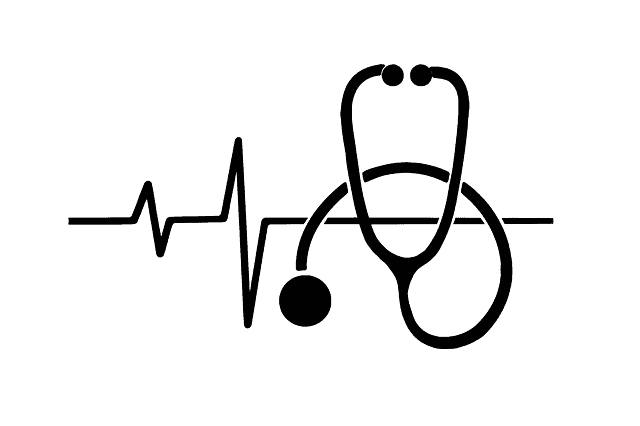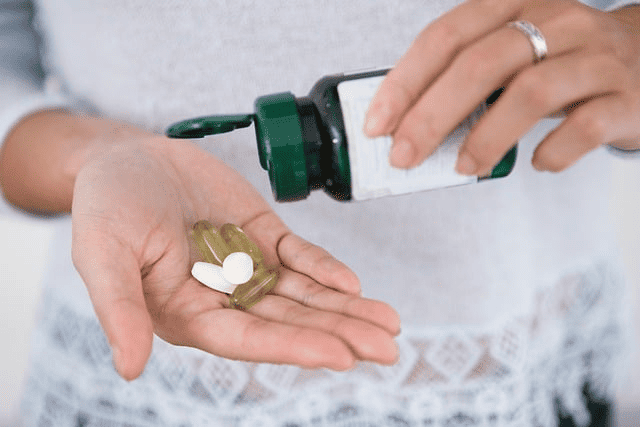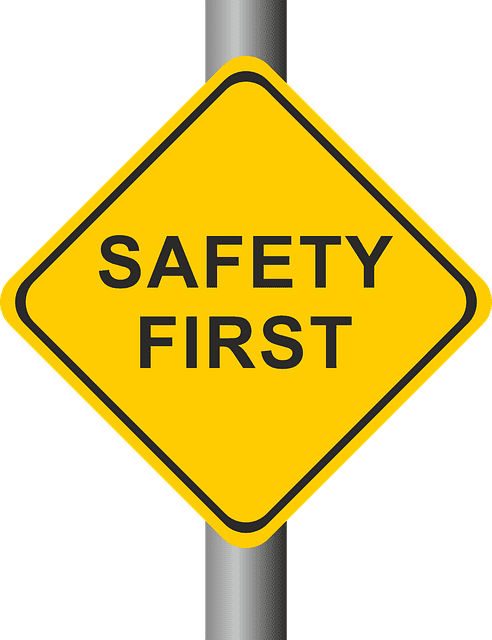Are you ready for nattokinase benefits? Natto-what? It’s an enzyme derived from fermented soybeans that can do amazing things for your health.
If you’re looking for an all-natural supplement to improve your circulation, lower your blood pressure, prevent blood clots, and support overall heart health, nattokinase should be at the top of your list. This potent little enzyme has been used for centuries in Japan, and now the rest of the world is catching on to its benefits. Here are 13 reasons to take nattokinase and why you need to start taking this now.
What Is Nattokinase?

Nattokinase is an enzyme extracted from natto, a traditional Japanese food made of fermented soybean. Nattokinase has multiple health benefits and fibrinolytic properties, which means it helps support healthy blood flow and circulation by breaking down fibrin, a protein involved in blood clot formation.
This supplement breaks down a product called fibrin and increases the release of tissue plasminogen (tPA) which leads to the formation of plasmin. This helps improved blood flow and to dissolve blood clots.
Nattokinase also helps maintain healthy blood pressure levels by supporting healthy circulation which leads to a decrease in cardiovascular disease mortality. It may also help reduce inflammation in the body, another factor that can negatively impact heart health and circulation.
Nattokinase is often taken in supplement form as an alternative to blood thinners for those looking to improve their cardiovascular health and circulation in a natural way. The typical dosage is 100 to 2000 fibrinolytic units (FUs), 1 to 3 times a day, depending on the condition being addressed.
Patients undergoing dialysis, those who are on blood thinners or with bleeding disorders should avoid nattokinase. As with any supplement, possible side effects can include gastrointestinal issues like nausea or diarrhea in some people. Nattokinase may also interact with some medications, so always check with your healthcare provider first, especially if you’re on any prescription drugs.
When taken as directed and under the guidance of your healthcare provider, nattokinase is considered very safe for most adults. For the best results, look for a reputable supplement brand and start with a lower dose, increasing slowly to find what works best for you.
Top 15 Benefits of Taking Nattokinase Supplements

Taking a nattokinase supplement has some major health perks. Here are a few of the top benefits:
1. Improved Circulation
Nattokinase can act like an oral antithrombotic agent by breaking up blood clots and improving circulation. This means more oxygen-rich blood can flow freely throughout your body. Better circulation also helps lower blood pressure and reduces the risk of heart disease.
2. Reduced Blood Pressure
It can help lower high blood pressure. Nattokinase improves blood flow and thins the blood. This takes pressure off your arteries and blood vessels. Lower systolic blood pressuremeans a lower risk of hypertension and related health issues.
3. Reduced Inflammation
Looking for a good anti-inflammatory supplement? Nattokinase has anti-inflammatory effects. I take it daily to reduce my inflammation and it really helps! It can help reduce chronic inflammation in the body which is linked to health issues like arthritis, allergies, and even Alzheimer’s disease. Less inflammation means less pain and a lower cardiovascular disease and risk overall.
4. Cardiovascular Health
Nattokinase may help support cardiovascular health by promoting healthy blood circulation and reducing the risk of blood clots. Additionally, it may aid in reducing blood pressure, improving blood vessel function, and lowering LDL cholesterol levels—all of which contribute to a healthier cardiovascular system.
5. Blood Thinning
It has natural blood-thinning properties, which could reduce the risk of blood clots, strokes and heart attacks. By promoting this fibrinolysis, nattokinase helps prevent excessive clotting within the blood vessels. This blood-thinning effect can lead to improved circulation, reduced risk of clots and may be particularly beneficial for individuals at risk of cardiovascular events like heart attacks.
Nattokinase and tissue plasminogen activator (tPA) are both enzymes that play crucial roles in the regulation of blood clotting and fibrinolysis, the process of breaking down blood clots. While they share a common objective in promoting blood clot dissolution, they differ in their origins and mechanisms of action.
Nattokinase is a naturally occurring enzyme derived from the Japanese food natto, and it has been studied for its potential thrombolytic properties. In contrast, tPA is a protein produced by the endothelial cells lining blood vessels and is used therapeutically as a clot-busting medication in cases of ischemic stroke and heart attacks.
Both nattokinase and tPA contribute to maintaining the delicate balance between clot formation and dissolution within the circulatory system, although they have distinct origins and clinical applications. Further research is ongoing to explore the potential synergistic effects of these enzymes in improving thrombolytic therapies.
6. Improved Blood Vessel Function
Nattokinase may support the health of blood vessel linings, potentially reducing the risk of heart disease and improving blood flow. It is thought to contribute to improved vascular health by promoting the maintenance of healthy blood vessel linings.
7. Improved Cholesterol Levels
Some research suggests that nattokinase may help lower levels of low-density lipoprotein (LDL) cholesterol, often referred to as “bad” cholesterol. It achieves this by facilitating the breakdown of fibrin, which plays a role in clot formation but can also contribute to the development of atherosclerotic plaques when present in excess.
8. Reduced Risk of Deep Vein Thrombosis (DVT)
Nattokinase may help prevent the formation of blood clots in deep veins, reducing the risk of DVT. DVT is a condition characterized by the formation of blood clots in the deep veins, typically in the legs, which can be potentially life-threatening if these clots break loose and travel to the lungs. Nattokinase has been called a natural tissue plasminogen activator.
Emerging research suggests that oral nattokinase potentiates thrombolysis, the process of breaking down blood clots, particularly in the context of cardiovascular health.
9. Antioxidant Effects
It may have antioxidant properties, which can help protect cells from damage caused by free radicals. Antioxidants are substances that help protect cells from damage caused by free radicals, unstable molecules that can contribute to oxidative stress and various health issues. Nattokinase’s antioxidant properties are thought to stem from its ability to scavenge free radicals and reduce oxidative stress in the body. By neutralizing these harmful molecules, nattokinase may contribute to the overall health and well-being of cells and tissues, potentially reducing the risk of oxidative damage-related conditions.
10. Blood Sugar Regulation
Some studies suggest that nattokinase may help regulate blood sugar levels. While nattokinase is primarily known for its potential cardiovascular benefits, some research has suggested a possible role in blood sugar regulation.
Nattokinase may contribute to improved blood sugar levels by influencing certain metabolic pathways. It is believed to enhance the body’s sensitivity to insulin, the hormone responsible for regulating blood sugar, and may assist in more efficient glucose utilization by cells. Additionally, nattokinase’s ability to reduce inflammation and oxidative stress may indirectly support better blood sugar control, as chronic inflammation and oxidative damage can impair insulin function.
11. Joint Health
It may have potential benefits for joint health and inflammation reduction. While its primary role is associated with cardiovascular health, some individuals have reported improved joint comfort and reduced inflammation after incorporating nattokinase into their diet.
Its ability to enhance blood circulation and reduce inflammation in the body may indirectly support joint health by ensuring that nutrients and oxygen reach the joints while helping to alleviate discomfort associated with inflammation.
12. Relief from Menstrual Symptoms
There is anecdotal evidence that nattokinase may help alleviate symptoms associated with heavy menstrual bleeding. Nattokinase has been suggested as a potential natural remedy for providing relief from certain menstrual symptoms, such as heavy menstrual bleeding and cramping.
Some women have reported anecdotal benefits from consuming nattokinase supplements during their menstrual cycles. The enzyme’s blood-thinning properties may help reduce excessive bleeding, and its potential to improve blood circulation could alleviate cramps and discomfort. However, it’s important to recognize that scientific evidence supporting nattokinase’s effectiveness for menstrual symptom relief is limited, and individual experiences may vary.
Women seeking relief from menstrual symptoms should consult with a healthcare provider to explore various treatment options and ensure their safety and suitability for their specific needs.
13. Immune Support:
Nattokinase may have immune-boosting properties, although more research is needed in this area. Some studies have suggested that nattokinase exhibits immune-boosting properties by modulating immune responses and promoting a balanced inflammatory state.
By reducing inflammation and oxidative stress in the body, nattokinase may help support the immune system’s overall function. However, it’s important to note that research in this specific area is still emerging, and more studies are needed to establish the extent of nattokinase’s impact on immune health.
While nattokinase may have immune-supporting potential, it should not be considered a standalone solution for immune system maintenance. A well-rounded approach to immune health, including a balanced diet, regular exercise, adequate sleep, and other immune-boosting strategies, is recommended in conjunction with any dietary supplements.
14. Stroke Prevention
Nattokinase reduces brain infarction – commonly known as a stroke due to its ability to promote cardiovascular health. Stroke often results from blood clots that block blood flow to the brain.
Nattokinase’s primary mechanism of action is its natural blood-thinning effect, which can help reduce the risk of clot formation. By enhancing the body’s fibrinolytic activity, nattokinase supports the breakdown of fibrin, a protein involved in clot formation. This process can help prevent the formation of dangerous blood clots in the arteries and reduce the risk of embolic or thrombotic strokes.
15. Fibrinolytic Activity
Nattokinase may break down fibrin, a protein involved in clot formation, potentially preventing blood clots by inhibiting platelet aggregation. Nattokinase’s fibrinolytic activity is one of its key characteristics and health-promoting mechanisms.
Fibrinolysis is the process by which the body breaks down fibrin, a protein involved in blood clot formation. Nattokinase, derived from the Japanese fermented soybean dish natto, is particularly effective in enhancing fibrinolysis. It does so by activating plasmin, an enzyme responsible for breaking down fibrin clots.
By promoting this natural clot-dissolving process, nattokinase can help prevent and alleviate thrombosis, which is the formation of unwanted blood clots in arteries and veins. This fibrinolytic activity is considered one of the primary reasons behind nattokinase’s potential benefits for cardiovascular health, as it supports healthy blood circulation, reduces clot formation, and may lower the risk of clot-related conditions like strokes and deep vein thrombosis.
Possible Medication Interactions
Before taking nattokinase, talk to your healthcare provider about any medications you’re on. Nattokinase can interact with blood thinners like aspirin or warfarin. It may also interact with ACE inhibitors used to treat high blood pressure.
With benefits like improved circulation, healthier blood pressure, and reduced inflammation, adding a nattokinase supplement to your daily routine is worth considering. When taken properly and under guidance, nattokinase can have significant benefits for heart, blood vessel, and overall health.
How to Take Nattokinase for Maximum Benefit

To get the most out of nattokinase, follow these tips:
Take it on an empty stomach
For maximum absorption, take nattokinase supplements at least 30 minutes before eating or 2 hours after a meal. Taking it with food can reduce its effectiveness.
Start with a low dose
When you first start taking nattokinase, begin with a lower dosage, around 2000 to 4000 FU per capsule. This allows your body to get used to it slowly. You can then build up to the full recommended dose of 4000 to 8000 FU two to three times per day.
Drink plenty of water
Nattokinase works best when you stay well hydrated. Aim for 6 to 8 glasses of water per day to aid digestion and circulation.
Consider enteric coated capsules
Enteric coated nattokinase capsules have a special coating that allows them to pass through your stomach acid intact before releasing in your intestines. This may help increase absorption for some people.
Don’t take it before surgery
Nattokinase has natural blood thinning effects, so discontinue use at least 2 weeks before any scheduled surgery or procedure. Resume taking it only when advised by your doctor.
Possible side effects
Nattokinase is generally very safe for short-term use, but possible side effects can include dizziness, stomach upset, and excessive bruising. See your doctor right away if you experience any severe or prolonged side effects.
By following these tips, you can maximize the benefits of nattokinase and improve your cardiovascular and circulatory health. Be sure to talk to your doctor before beginning any new supplement to make sure it’s right for you and does not interact with any medications you’re currently taking.
Who Should Avoid or Be Cautious With Nattokinase

If you have a blood clotting disorder or are on anticoagulant medications, nattokinase may not be for you. The enzyme in nattokinase works by breaking down fibrin, a protein involved in blood clot formation. For some, this could increase the risk of bleeding. Check with your doctor first before taking nattokinase.
People with low blood pressure should also exercise caution. Nattokinase may lower blood pressure, which could cause a drop that’s too significant for some. If you have a history of low blood pressure or hypotension, start with a low dose of nattokinase and monitor your blood pressure closely. You may need to adjust or stop the dosage.
Pregnant women and nursing mothers should avoid nattokinase. There is not enough research to determine if it’s safe for fetal or infant development. It’s best to err on the side of caution in this case.
If you’re scheduled for surgery, stop taking nattokinase at least 2 weeks beforehand. Because it thins the blood, nattokinase could increase your risk of bleeding during and after the procedure. Check with your doctor for their recommendation based on your specific surgery.
As with any supplement, nattokinase may interact with certain medications. Especially be aware of interactions if you’re on blood thinners like warfarin or antihypertensives. Nattokinase could enhance the effects, increasing your risk of side effects. Talk to your pharmacist or healthcare provider about potential nattokinase interactions with any prescription drugs you’re currently taking.
When in doubt or if you have a serious medical condition, check with your doctor before taking nattokinase or any dietary supplement. It’s best to get their guidance to ensure nattokinase, even in low doses, will be safe and appropriate for you.
Possible Nattokinase Side Effects and Medication Interactions

Nattokinase is generally very safe, but some possible side effects and medication interactions to be aware prevention and treatment of of include:
Stomach upset
Nattokinase can sometimes cause mild stomach upset, nausea or diarrhea in some people. To reduce the chance of this, start with a lower dose and take nattokinase with food. If you experience significant or persistent gastrointestinal issues, nattokinase may not be right for you.
Blood thinning
Nattokinase has a mild blood thinning effect and could increase the risk of bleeding in some people. Don’t take nattokinase if you take prescription blood thinners like warfarin (Coumadin) or clopidogrel (Plavix). Nattokinase may also interact with some over-the-counter pain relievers like aspirin, ibuprofen (Advil, Motrin) and naproxen (Aleve). Talk to your doctor before taking nattokinase if you take any of these medications regularly.
•Allergy
Some people may be allergic to nattokinase, especially those with a soy allergy. Discontinue use and consult your doctor immediately if you experience symptoms like rash, hives, itching, swelling or shortness of breath.
While nattokinase is natural and generally recognized as safe for short-term use, the possible side effects and interactions mean it may not be right for everyone. As with any supplement, talk to your doctor before taking nattokinase, especially if you take any medications or have an underlying health condition. When taken under the guidance of your doctor and according to the recommended dosage, nattokinase can be a safe and effective way to support heart and circulatory health.
What Drugs Does Nattokinase Interact With?
Nattokinase can interact with some medications, so check with your doctor before taking it. Some drugs that may interact with nattokinase include:
-
Anticoagulants (blood thinners) like warfarin (Coumadin), heparin, and aspirin. Nattokinase also has blood-thinning effects, so combining it with these drugs could increase the risk of bleeding.
-
Antiplatelet drugs like clopidogrel (Plavix). These medications also affect blood clotting, and nattokinase may enhance their effects.
-
High blood pressure medications. Nattokinase may lower blood pressure, so nattokinase could potentially cause blood pressure to drop too low if combined with blood pressure-lowering drugs.
-
Diabetes medications. Nattokinase may lower blood sugar, so diabetes drugs or insulin doses may need to be adjusted to avoid hypoglycemia.
-
Supplements like fish oil, turmeric or gingko biloba. These supplements also have blood-thinning effects, and the combination with nattokinase could increase bleeding risk.
-
Certain chemotherapy drugs. Nattokinase may interact with some cancer medications. Check with your oncologist before taking nattokinase if you are undergoing chemotherapy.
In general, you should avoid combining nattokinase with any drugs, supplements or herbs that affect blood clotting or blood pressure. Be sure to talk to your doctor about any potential nattokinase drug interactions and have your blood monitored if needed. When in doubt, it is best to avoid using oral nattokinase alone altogether if you are on any prescription medications.
How to Store Nattokinase
To maximize the effectiveness and shelf life of your nattokinase supplement, proper storage is important.
Keep the bottle tightly sealed.
Exposure to air and moisture can speed up degradation of the capsules or tablets. Keep the bottle securely closed when not in use.
Store in a cool, dry location.
The ideal temperature range is between 59 to 77°F. Avoid extreme heat or freezing temperatures. A pantry, closet or cabinet away from appliances is good. Heat and humidity can damage the potency and consistency of the supplement.
Keep out of direct sunlight.
UV exposure also reduces supplement stability and effectiveness. Keep the bottle in a spot away from windows and bright light.
Do not refrigerate.
While refrigeration works for some supplements, nattokinase does not need to be chilled. In fact, the temperature fluctuations of fridge doors opening and closing can negatively impact potency. Room temperature is best.
Use within the recommended shelf life.
Most nattokinase supplements will last 2 to 3 years from the manufacture or “best by” date when properly stored. For the highest quality and effectiveness, follow the suggested use period provided on your specific product packaging.
By following these simple storage tips, you can help ensure your nattokinase supplement maintains maximum stability, potency and effectiveness until you reach the last capsule. Proper storage, combined with consistency in taking the recommended dosage, will allow you to gain the most benefit from this fibrinolytic enzyme.
Conclusion
So there you have it, 13 convincing reasons why you should consider adding nattokinase to your daily supplement regimen. This potent enzyme can have life-changing benefits for your heart and circulatory health without the risks and side effects of prescription drugs. If you’re looking for an all-natural way to support healthy blood flow, nattokinase deserves a spot at the top of your list. Talk to your doctor, do some research on reputable supplement brands, and give nattokinase a try—your heart will thank you.
Frequently Asked Questions
How much nattokinase should I take?
How much nattokinase should I take? The typical dosage is between 2,000 to 4,000 FU (Fibrinolytic Units) per day. Start with a lower dose around 2,000 FU and slowly increase single dose to find what works for you.
How often should I take nattokinase?
Nattokinase is best taken on an empty stomach, at least 30 minutes before or 2 hours after eating. Most people take it 2-3 times a day, about 6-8 hours apart.
Who should not take nattokinase?
You should not take nattokinase if you are pregnant, breastfeeding or planning surgery in the next 2 weeks. Also use caution if you have a bleeding disorder or are on blood thinners.
What are the side effects?
Nattokinase is generally considered very safe, with minimal side effects. Some people report minor gastrointestinal issues like nausea or diarrhea. However, see a doctor right away if you experience severe or prolonged side effects.
Can I take nattokinase with medications?
Nattokinase may interact with some medications like blood thinners, blood pressure meds, and diabetes drugs. Talk to your doctor or pharmacist before taking nattokinase if you are on any regular medications.
Nattokinase shows promise for supporting heart and circulatory health. By understanding how and when to properly supplement with it, you’ll be on your way to reaping the benefits of this natural enzyme. Be sure to check with your doctor first, especially if you have any underlying health conditions or are on medications.
